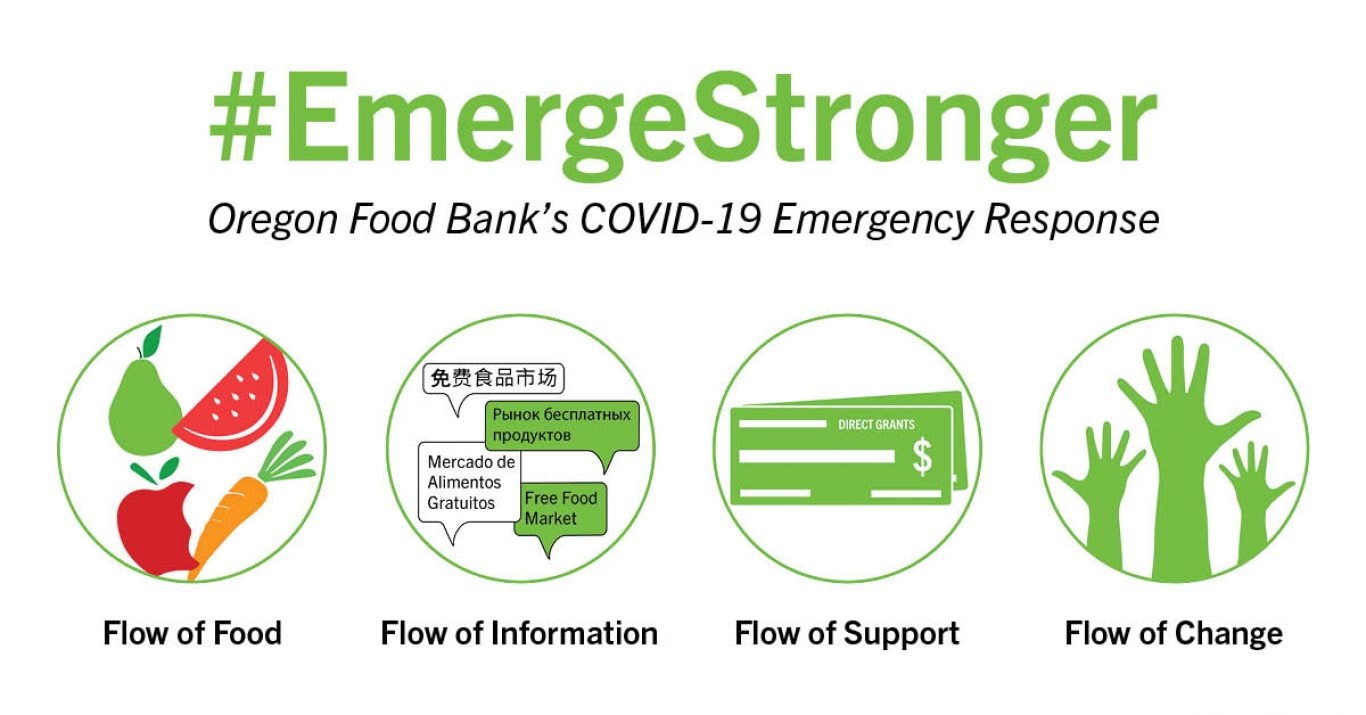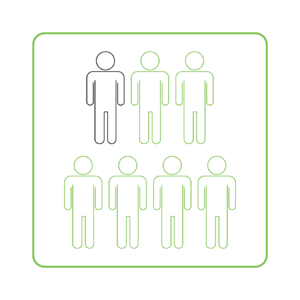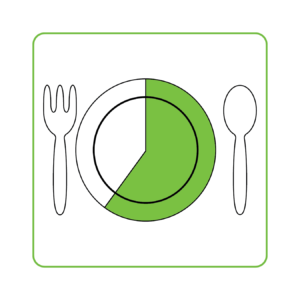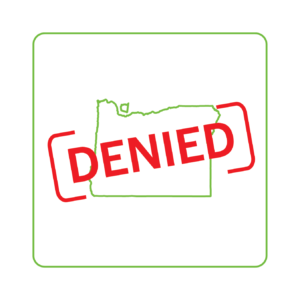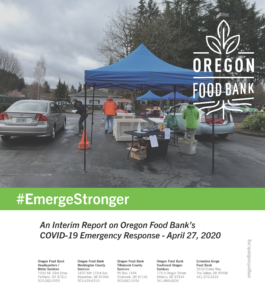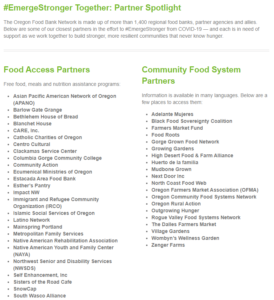Interim Report on Our Efforts to #EmergeStronger from COVID-19
Interim Report on Our Efforts to #EmergeStronger from COVID-19
When more than 860,000 people rely on your services annually — a number that grows each week as this crisis deepens — there’s never a ‘good’ time to pause and reflect. And as a pillar of regional disaster response, Oregon Food Bank is leveraging our full strength to ensure that the region’s food assistance system remains robust and effective.
While we continue in our unwavering dedication to the health and well-being of our communities, I do want to take a moment to share some progress in our collective effort to emerge stronger from COVID-19.
COVID-19 Escalates Food Insecurity
Throughout the OFB Network, we’re witnessing a dramatic increase in need as public institutions and businesses shutter the wake of this public health and economic crisis. Families reel from lost wages, unpaid medical leave, and unplanned childcare and healthcare costs. The Federal Reserve estimates that 40% of Americans don’t have $400 or more on hand for an emergency expense. And Feeding America correlates a 1% increase in unemployment to a 10% increase in reliance on food assistance systems.
COVID-19 has laid bare the systemic inequities that leave too many of our neighbors vulnerable, particularly in immigrant and people of color communities. While food assistance does not, in and of itself, advance racial equity — a lack of food contributes to the disenfranchisement of communities. Your support helps us meet the hunger needs of our communities today. And by providing for essential needs, in partnership, we are opening space for longer-term systems change.
#EmergeStronger: Strategic Priorities & Investments
Since March 14, OFB donors have shown up for the #EmergeStronger Community Challenge by collectively exceeding the initial $1,000,000 challenge from John and Eileen Donahoe. Thousands of supporters are rallying to strengthen OFB’s key, strategic priorities — ensuring that our communities not only survive COVID-19 but that we #EmergeStronger on the other side. These gifts are propelling the food assistance system’s capability to keep pace with growing need while we anticipate the arrival of federal aid in July 2020.
Fueled by our community’s generosity and moral leadership, Oregon Food Bank is deploying more than $4,100,000 in public and private resources, including donations made by donors, like you. Total investments in each of our strategic priorities showcase how we are actualizing our emergency response plan.
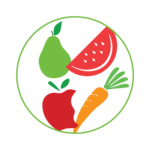
FLOW OF FOOD: $2,365,000
Oregon Food Bank is implementing innovative, safe food distribution models, purchasing food from local farmers impacted by coronavirus, and supporting partners financially to keep neighbors fed in every corner of our region. Our efforts are moving nutritious food to families who typically rely on school meals, those who are newly unemployed, single parents balancing work and childcare, and community members who have historically faced food insecurity and are now struggling even more.
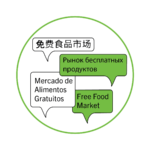
FLOW OF INFO: $420,000
Our Food Finder app is instrumental in ensuring our neighbors know where to access food and to rapidly disseminate COVID-19 updates. It is imperative that information about SNAP (sometimes referred to as food stamps) — our most effective anti-hunger program — and other critical resources reach our community where they are. We’ve built out a full page of community resources and are advertising across traditional and digital platforms in 11 languages common to the Pacific Northwest.

FLOW OF SUPPORT: $1,115,000
Oregon Food Bank has offered grants to all 21 regional food banks (RFBs) throughout our Network. We’re also providing supplies (boxes, gloves, tents, and hand sanitizer) to support new, safe food distribution methods. This support is reaching our local pantries, meal sites and delivery operations in every rural and urban community in our service area. RFBs have put these funds to immediate use for increased staffing, forklift rentals, packaging supplies and more.

FLOW OF CHANGE: $230,000
By influencing systemic solutions at the state and federal levels, we are protecting and strengthening our social safety net in partnership with movement-building organizations that work directly with equity constituencies (including Black and Latinx, immigrant and refugee, indigenous, and LGBTQ+ communities). Together we have successfully secured an $8,000,000 allocation from the State of Oregon to support increased food and distribution needs across the OFB Network until federal aid arrives.
The Work Ahead
With the state’s allocation, alongside the investments made by thousands of supporters like you, Oregon Food Bank is strongly positioned to meet today’s demands. We have weathered the initial shock of this pandemic and fortified the food assistance system to endure in the weeks ahead.
But we know we have a long road ahead — the pandemic’s economic impact will continue to ripple through our community for 12 months, 18 months or more. Need for essential resources will continue to grow and it will take all of us, working together, to continue addressing that need.
Oregon Food Bank remains adaptive to this rapidly changing environment. In partnership with our generous supporters, we will continue to move extraordinary volumes of food into communities facing the threat of hunger and economic insecurity at profound rates. We are working alongside donors and decision-makers, and championing the leadership of those most impacted. We are ushering in systemic changes and solutions that prevent food insecurity from becoming a symptom of COVID-19 — driving toward our long-term vision to end hunger for good. With your support, we remain stalwart in our vision of resilient communities that never go hungry.
Thank you for being among those we can turn to in times of crisis. Thank you for ensuring our communities #EmergeStronger from COVID-19. Please know that we love you for your commitment to ending hunger, and that we will keep you updated as our emergency response efforts progress.
We’ve compiled this information and many more details in a printer-friendly document. Please feel free to download and share with friends, colleagues and others who share our commitment to #EmergeStronger from this crisis.
There are many ways to strengthen the food assistance system across our region. If you are interested in supporting a statewide or local organization in your area, we’ve compiled a list of our closest partners who may be especially in need at this time.
